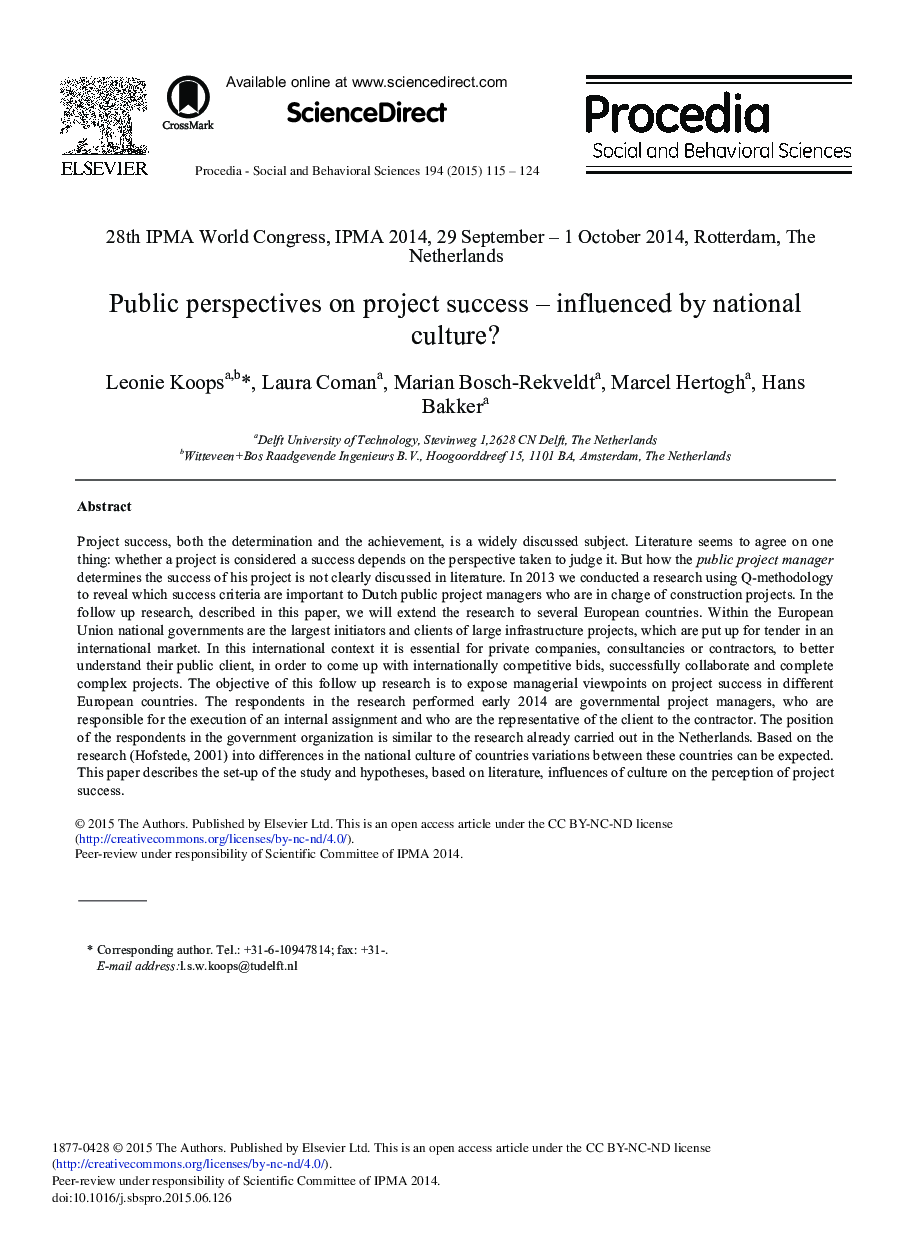| Article ID | Journal | Published Year | Pages | File Type |
|---|---|---|---|---|
| 1109437 | Procedia - Social and Behavioral Sciences | 2015 | 10 Pages |
Project success, both the determination and the achievement, is a widely discussed subject. Literature seems to agree on one thing: whether a project is considered a success depends on the perspective taken to judge it. But how the public project manager determines the success of his project is not clearly discussed in literature. In 2013 we conducted a research using Q-methodology to reveal which success criteria are important to Dutch public project managers who are in charge of construction projects. In the follow up research, described in this paper, we will extend the research to several European countries. Within the European Union national governments are the largest initiators and clients of large infrastructure projects, which are put up for tender in an international market. In this international context it is essential for private companies, consultancies or contractors, to better understand their public client, in order to come up with internationally competitive bids, successfully collaborate and complete complex projects. The objective of this follow up research is to expose managerial viewpoints on project success in different European countries. The respondents in the research performed early 2014 are governmental project managers, who are responsible for the execution of an internal assignment and who are the representative of the client to the contractor. The position of the respondents in the government organization is similar to the research already carried out in the Netherlands. Based on the research (Hofstede, 2001) into differences in the national culture of countries variations between these countries can be expected. This paper describes the set-up of the study and hypotheses, based on literature, influences of culture on the perception of project success.
